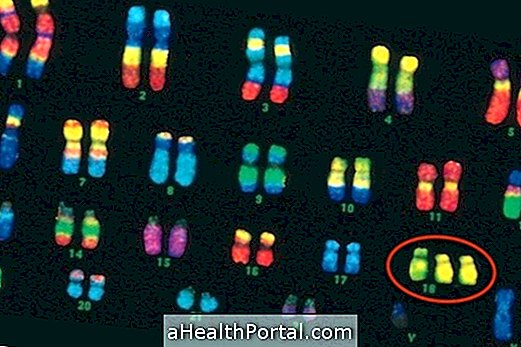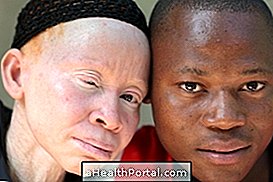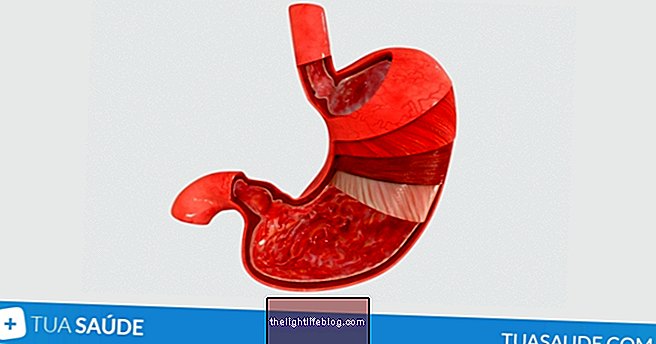Angelman Syndrome is a genetic and neurological disease characterized by convulsions, disconnected movements, intellectual retardation, lack of speech, and excessive laughter. Children with this syndrome have a large mouth, tongue and jaw, a small forehead, and are usually blond and blue-eyed.
The causes of Angelman Syndrome are genetic and are related to a problem on chromosome 15, such as in Prader-Willi Syndrome.
Angelman Syndrome has no cure, but there is treatment to decrease symptoms and improve quality of life.
Symptoms of Angelman Syndrome
The symptoms of Angelman Syndrome can be:
- Severe mental retardation;
- Absence of language, with no or little use of words;
- Frequent seizures;
- Frequent laughter episodes;
- Inability to coordinate movements or trembling limbs;
- Microcephaly;
- Hyperactivity and inattention;
- Sleep disorders;
- Increased sensitivity to heat;
- Attraction and fascination with water;
- Strabismus;
- Jaw and tongue out;
- Spaced teeth;
- Baba frequent.
One characteristic of the common Angelman Syndrome is that children laugh and wag their hands, which also occurs in times of excitement.
Diagnosis of Angelman Syndrome
The diagnosis of Angelman Syndrome is done by evaluating the combination of symptoms such as severe mental retardation, uncoordinated movements, seizure and happy countenance.
Performing an electroencephalogram may be useful to confirm the diagnosis, as well as genetic or molecular tests.
Treatment of Angelman Syndrome
The treatment of Angelman Syndrome does not cure the disease, however, it helps to reduce the symptoms presented by the patients.
Convulsive seizures can be controlled through anticonvulsive drugs, such as valproate or carbamazepine. Melatonin can be used to control the sleep cycle.
Physiotherapy in Angelman Syndrome is recommended, as is speech therapy or occupational therapy, to improve language ability, control of involuntary movements, and intellectual retardation.
















